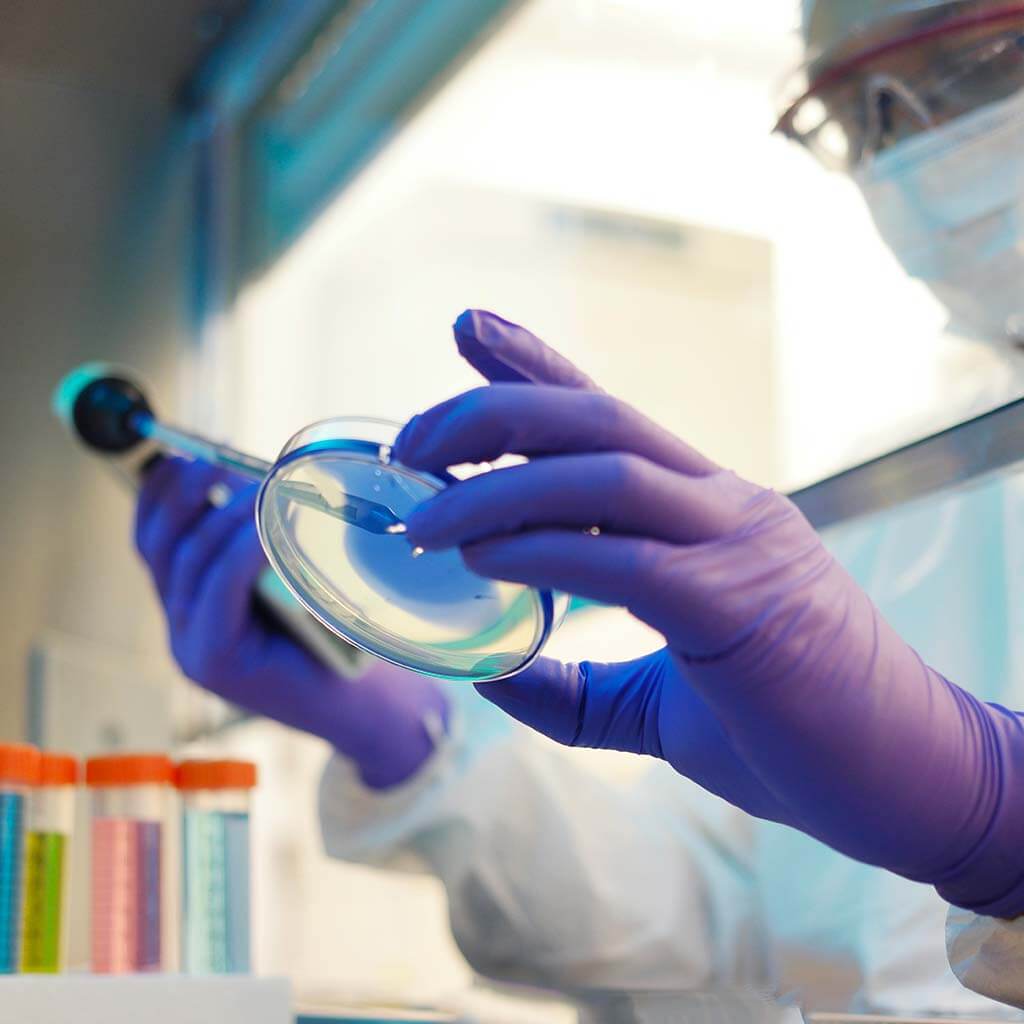Nutrigenetic test: what it is and when it is needed?

Publication date: 31-03-2023
Updated on: 05-04-2023
Topic: Nutrition
Estimated reading time: 1 min
Article Author
Eleonora OrioliMedical Editor
Gabriele Pellicciotta
Editor and Translator
Viktoryia LuhakovaPhilosopher Ludwig Feuerbach stated as early as the 19th century, "We are what we eat." Recent studies have confirmed how much and in what ways nutrition and environment contribute to shaping our individuality, influencing the action of genes in DNA. From these studies came 2 specialties that are part of Genetics:
- nutrigenomics, a branch of medicine that studies the relationships between diet, disease and individual genetic makeup, explaining how diet affects the activation or silencing of the message contained in genes;
- epigenetics, which studies the degree to which genes are activated, expressed, and changed as a function of the environment.
According to the World Health Organization, these 2 medical branches have been shown to be the disciplines that will have a positive impact on the health status of the population more than others. Nutrigenomics, in particular, can already be used as the basis for personalized treatment pathways, as is the case, for example, in Gruppo San Donato's new detox pathway where dietary genetic testing is among the tests used to build a personalized remise en forme pathway.
We delve into the topic on Nutrigenomics and genetic food testing (or nutrigenetic testing) with Dr. Gabriele Pellicciotta, Health Director of RAF First Clinic and specialist in Gastroenterology, Food Science and Internal Medicine.
Genetic food testing: why is it done?
"Genetics is a branch of biology that deals with hereditary material, how it functions and how it is transmitted. This is done by studying DNA and particular structures that make it up, called genes.
The 99.9 percent human genome is identical in every person in the world and is what characterizes our species. It is only that remaining 0.1 percent that makes each of us different from others, justifying that set of characteristics that makes us unique," Dr. Pellicciotta explains.
Dietary genetic testing consists of reading the patient's DNA and, from this, any polymorphisms (which are called SNPs), which are statistically correlated with an increase in a certain type of risk (obesity, hypertriglyceridemia, osteoporosis) are evident. The identification of potentially harmful situations for the patient, such as:
- intolerances (lactose, gluten),
- dysmetabolisms (such as metabolic syndrome),
allows physicians to effectively counteract them with a range of preventive and proactive actions, up to and including, if necessary, suggesting supplements and diets or suggesting clinical insights.
What this reveals?
Nutrigenetic or genetic food testing is a test that can concretely translate what is the actual impact of foods on DNA. This test can be, therefore, a key starting point for achieving an optimal state of mental and physical needs for all individuals facing a period of malaise. It can be, in fact, the first step for all people who wish to regain a balanced metabolic profile.
"The body is equipped with an enzymatic detoxification system that neutralizes and eliminates in 3 steps all substances other than nutrients, such as drugs, toxins, and carcinogens:
- in stage 1 the toxins are chemically modified;
- in stage 2 they are conjugated with special chemical groups to facilitate their excretion;
- in stage 3 the toxins are eliminated from the body by urine or bile."
In addition to the typical aspects of detoxification processes, it is also extremely important to have the clinical picture of predispositions, for example:
- to the accumulation of triglycerides,
- to the metabolism of HDL/LDL,
- to the metabolic response to exercise in weight loss,
- to the metabolic diseases,
- to obesity.
How it is done and its results?
"The genetic test, which is painless and easy to do, is performed by DNA extracted from the saliva of the patient who undergoes it. The genetics laboratory sequences the DNA and gives an initial result on the presence of any polymorphisms, which must then be processed by specialists.
Genetic investigation is currently the only way by which it is possible to gain information about an individual's predisposition to develop certain diseases. This means that by knowing the genetic characteristics and predisposition, preventive actions can be taken at the level of nutrition and supplementation, lifestyle and physical activity, diagnostic monitoring, and targeted therapy. These actions can prevent the development of the disease, delay it, or mitigate its risk.
In other words, we only inherit the predisposition, but not the disease. Therefore, the sooner we learn about the possible risk we are exposed to, the sooner we take the necessary precautions," the doctor clarifies.
There is growing evidence that genetic factors are involved in all aspects of weight regulation, including caloric intake and energy expenditure, so much so that several studies attribute 40-70% of the responsibility for overweight and obesity in both adults and children to heredity.
This information greatly assists the medical specialist in setting the diet. Celiac disease, for example, is the leading cause of malabsorption in children. Chronic Inflammatory Bowel Diseases (ICDs), Crohn's disease (CKD) and Ulcerative Rectocolitis (UCR) are related to diet in addition to environmental factors.
"Testing is ideally recommended for everyone because the more information we have about ourselves and our genetic susceptibilities, the better we can deal with them and counter them effectively. Knowing that we have a greater susceptibility to weight gain or the onset of osteoporosis when we are at young age helps us crucially in the future to define lifestyles and eating behaviors. All reports are written with reference to what is accepted in the Literature of the International Scientific Community," the specialist continues.
Genetic food testing in Gruppo San Donato's new detox pathway
Genetic testing is one of the key starting points for defining the most appropriate course of treatment for each individual.
For this reason, Gruppo San Donato specialists have included nutrigenetic testing among the examinations offered in the new exclusive detox pathway: a multidisciplinary pathway for the recovery of psychophysical well-being entirely focused on the relationship between medicine and nutrition and calibrated to the individuality of the patient who accesses it, which involves a new model of personalized care.
"This is a completely different way of approaching the problem related to nutrition and wellness, because it is the only one that takes into account the individuality of the patient, his metabolism, his response to physical activity, his intolerances, and any deficiencies in elements that are fundamental to wellness.
A team of medical specialists reads and interprets the patient's genetic heritage revealed by the genetic food test and compiles the report consisting of the genetic information, advice on nutrition, supplements, physical activity and lifestyle, recommending, if necessary further clinical examination.
Subsequent genetic counseling performed by the physician explains the results of the tests performed to the patient. The report concludes with the personalized food map: that is, foods that are genetically compatible with the patient's sensitivities/intolerances and needs.
There are currently no other facilities that apply this mode of reporting to the genetic survey and the generated report, nor do they guarantee the subsequent genetic counseling performed to the patient by the medical specialist," Dr. Pellicciotta concludes.